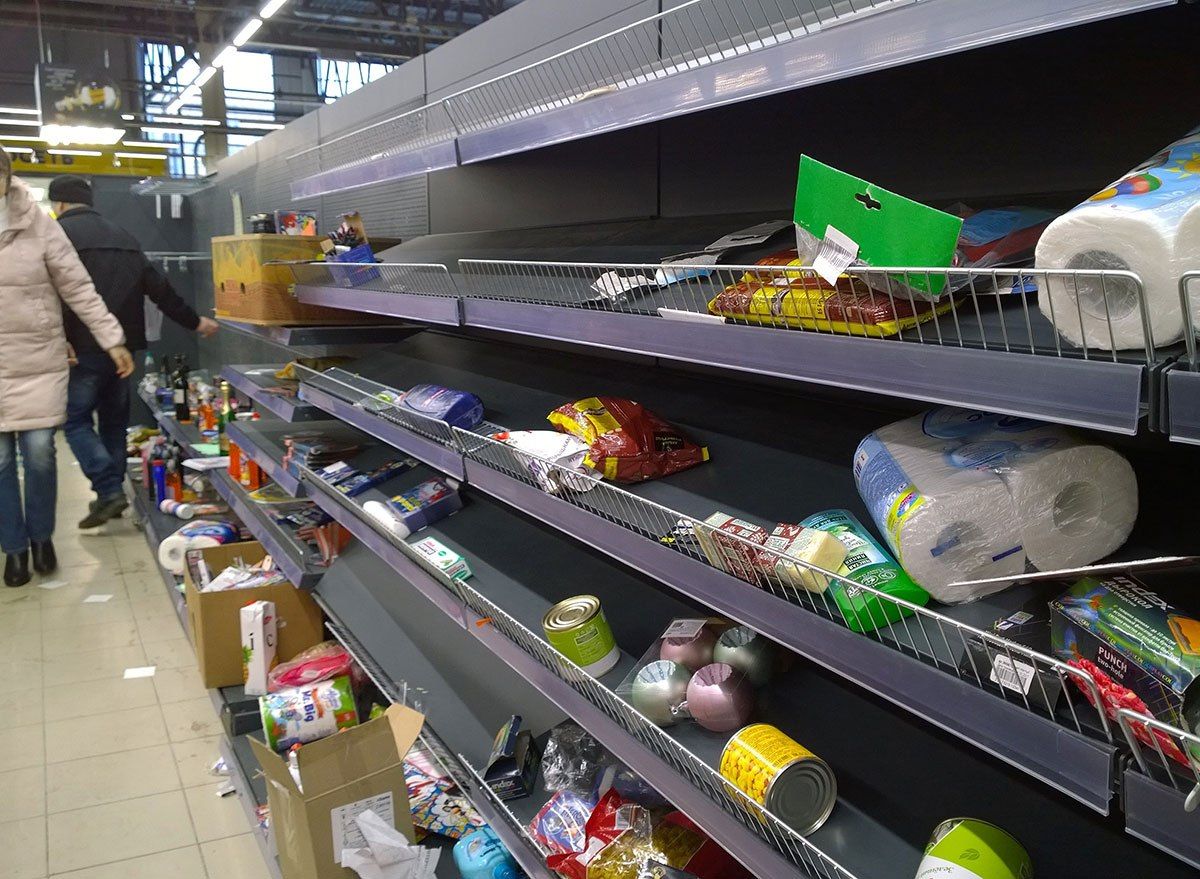
Grocery Shortages Are Forcing People to Do This While Shopping
As much as you may wish otherwise, empty shelves at grocery stores are not a thing of the past. Walmart announced it's running short of not only toilet paper but also cleaning supplies, while Wegmans recently placed purchasing limits on 13 popular items. They're far from the only retailers who are reporting disappearing items from store shelves as a third wave of the COVID-19 pandemic hits despite efforts to proactively stockpile essential household goods.
Surprisingly, shortages of some products actually mean profits for grocery stores because shoppers are forced to do doing something they normally may not do when their favorite item is out of stock—buy an off-brand product. Eighty-six percent of shoppers have explored store-owned brands and other alternatives to private label items since the start of the pandemic.
"The surge in private label purchases has become the unexpected silver lining of COVID-19 for grocers," Mike Webster, Oracle Retail's senior vice president and general manager, says. "Consumers uninterested in trying something new were forced to branch out due to shortages and now plan to stick with their new finds."
And not only did consumers branch out and try different brands but also many actually liked what they found, the data reveals. Thirty-four percent of respondents plan to shop a mix of new finds and preferred brands on an ongoing basis and 32% plan to stick to store brands for good. This could mean good news regarding the availability of products beyond Charmin toilet paper and Clorox wipes. If more people become accustomed to buying a wider array of brands, shortages of certain products may decrease.